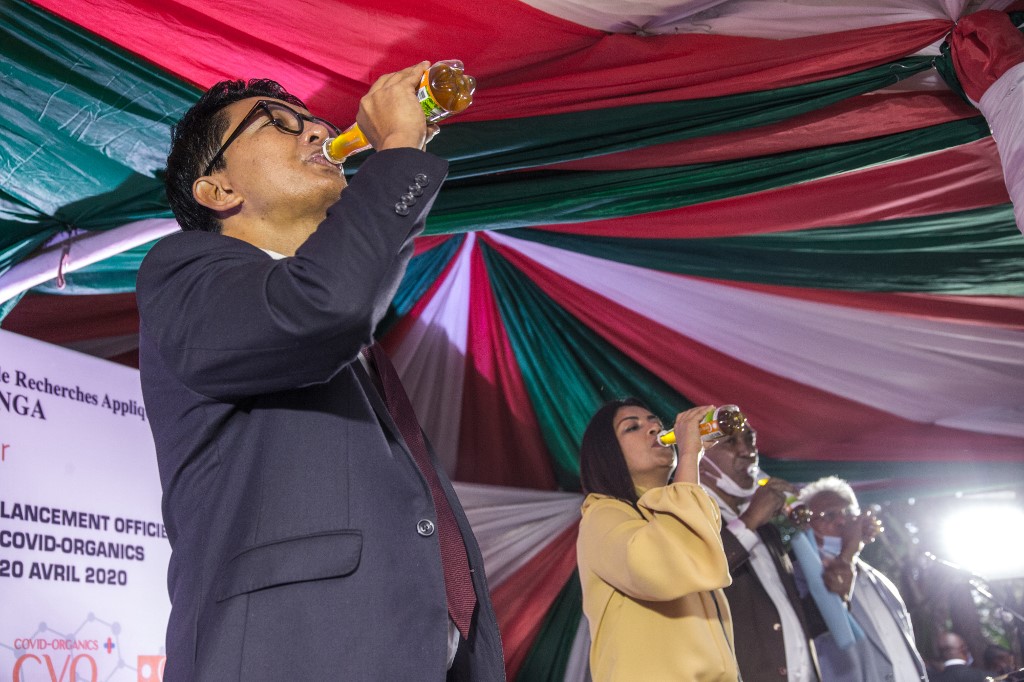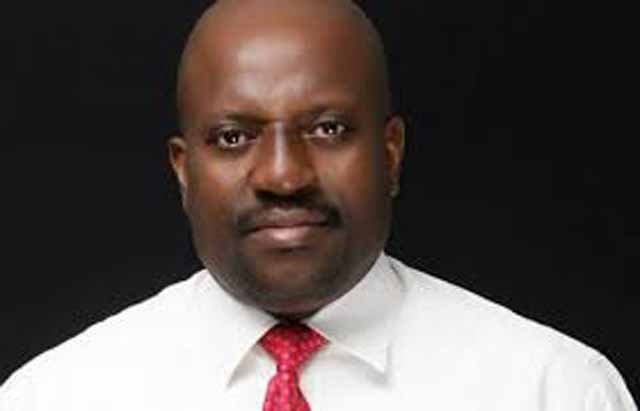President Muhammadu Buhari has directed the presidential task force on COVID-19 to pick up Covid-Organics, Madagascar’s acclaimed herbal remedy for co
President Muhammadu Buhari has directed the presidential task force on COVID-19 to pick up Covid-Organics, Madagascar’s acclaimed herbal remedy for coronavirus.
Boss Mustapha, secretary to the government of the federation, said Madagascar donated some of the products to Nigeria through Guinea-Bissau and arrangements were being made to pick them up.
Madagascar has since been giving away thousands of bottles of the product, developed by the state-run Malagasy Institute of Applied Research, to countries across Africa. Guinea-Bissau has received more than 16,000 doses, which it is distributing to 14 other African nations, according to reports.
“Madagascar has made allocations to various countries, and sent them to Guinea Bissau. We‘re supposed to make arrangements to freight Nigeria’s allocation from Guinea Bissau; it‘ll be subjected to the standard validation process for pharmaceuticals,” he said.
“Mr President has given instructions for the airlifting of Nigeria’s allocation of the Madagascar COVID-19 syrup; also given clear instructions that it must be subjected to the standard validation process for pharmaceuticals; there will be no exceptions for this.”
He added that there is a clear instruction that the herbs be subjected to checks by relevant authorities in Nigeria. The remedy is a drink derived from artemisia, a plant with proven efficacy in malaria treatment, and other indigenous herbs. The Federal Government has said the ‘Artemisia annua’, the plant extract in Madagascar’s announced ‘remedy’ for coronavirus also grows in Nigeria, according to the Minister of Health, Dr Osagie Ehanire.
At least 55 COVID-19 patients in Madagascar have recovered after being treated with the country’s herbal remedy for the disease. Of the 193 COVID-19 cases so far recorded in Madagascar, 101 have recovered while none has died.
However, the World Health Organisation (WHO) warned against adopting the product which has not been “taken through tests to see its efficacy”.
“We are concerned that touting this product as a preventive measure might then make people feel safe,” Matshidiso Moeti, WHO’s head in Africa, had said.


